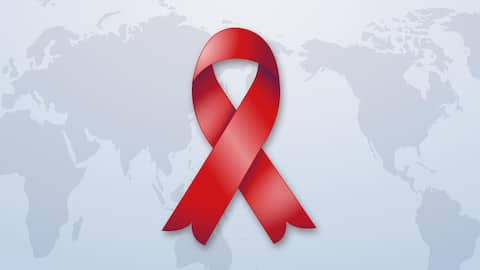World AIDS Day 2023: Busting myths about HIV and AIDS
What's the story
December 1 every year since 1988 is observed as World AIDS Day to raise awareness about HIV (human immunodeficiency viruses) and AIDS (acquired immunodeficiency syndrome) which are considered major global health concerns. Since untreated HIV can transform into life-threatening AIDS, there are a lot of misconceptions that people believe which fill their minds with misleading information. Today, let's bust some common, frequently-believed myths.
Myth 1
HIV always leads to AIDS
This is not entirely true. HIV causes AIDS but that doesn't mean that all individuals diagnosed with HIV contract AIDS. Thanks to advanced medical science, AIDS can be prevented by early treatment of HIV. With the help of medication and therapies, the levels of HIV infection can be kept under control, ensuring that it does not spread and cause AIDS.
Myth 2
HIV is nothing short of a death sentence
If proper treatment is sought, people with HIV can lead a healthy life. In fact, with this, they can even live up to a normal life span like any other individual. Hence, HIV is not a death sentence as recent advances in medicine have made it treatable. It is known that untreated HIV takes about 10 to 15 years to convert into AIDS.
Myth 3
HIV-positive people can't safely have children
This one is not true in all cases. A woman dealing with HIV and preparing for her pregnancy can get in touch with her doctor to begin antiretroviral therapy at the earliest. Experts reveal that if women with HIV take their medicines daily and continue the same for their baby for four to six weeks after delivery, the baby can live an HIV-free life.
Myth 4
If you take PrEP, you don't need condoms
PrEP or pre-exposure prophylaxis is a medicine that can safeguard from HIV infection well in advance. However, being on a PrEP course does not guarantee protection during unprotected sexual activity. Experts recommend pairing PrEP with safe sex practices as according to studies, various sexually transmitted infections have been found in people after 12 months of their ongoing PrEP course. Stay safe!
Myth 5
If both partners have HIV, they don't need condoms
Another common myth is that if both parties have HIV, they don't need to use condoms. Per the Centers for Disease Control and Prevention (CDC), if both the partners indulging in sexual intercourse with each other have HIV, they should still use condoms as there are chances of transmitting new strains of HIV or in some cases, a "superchain" of the same infection.
